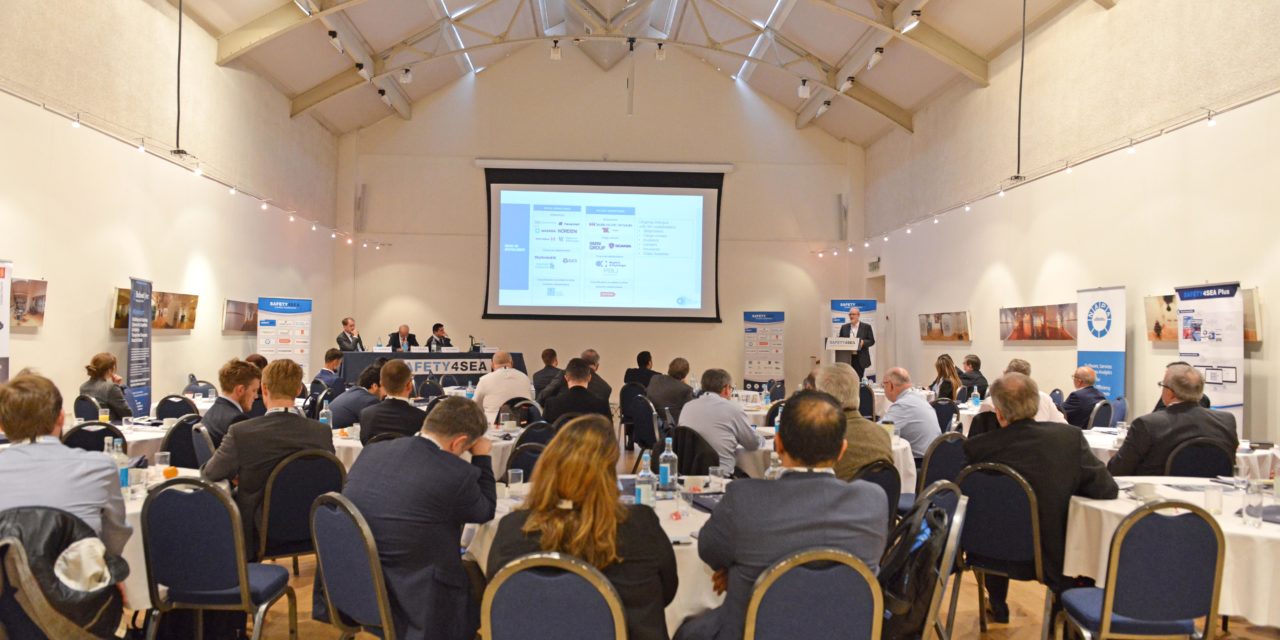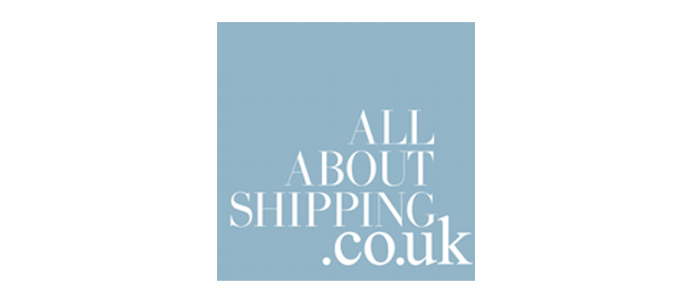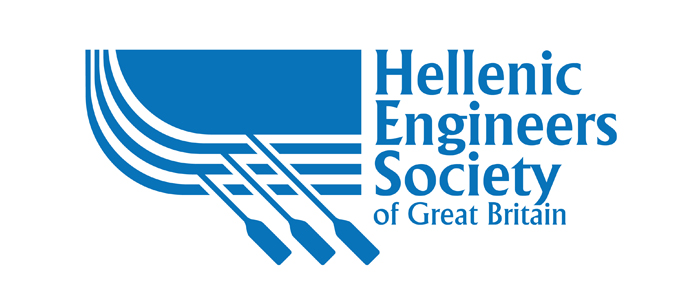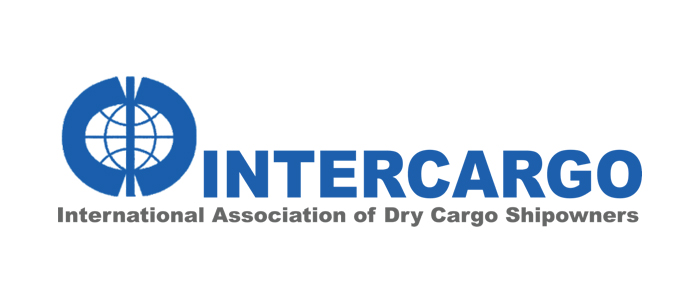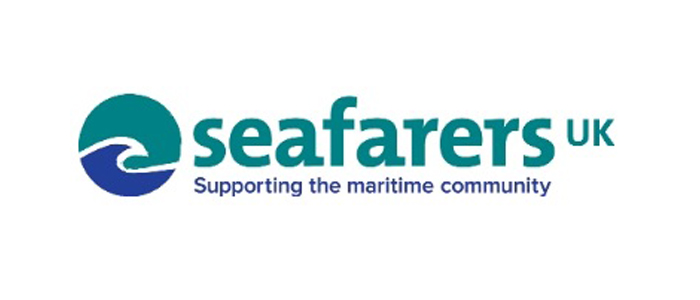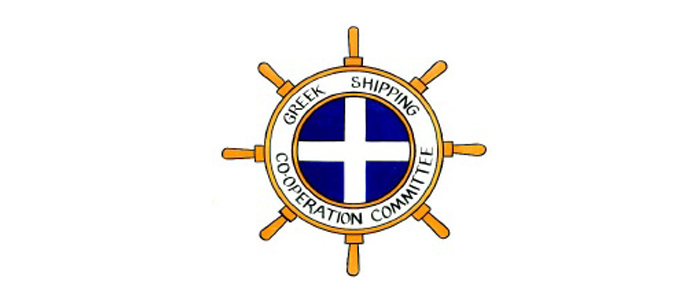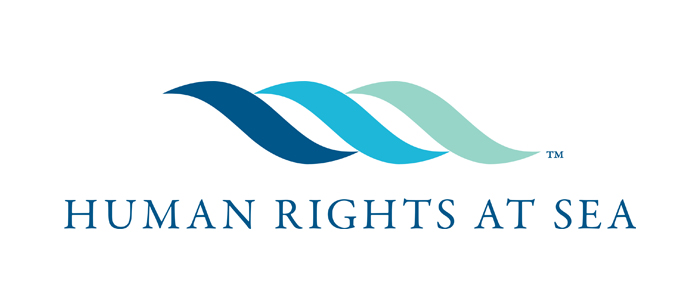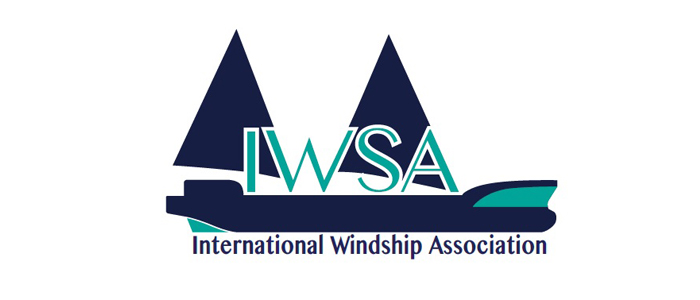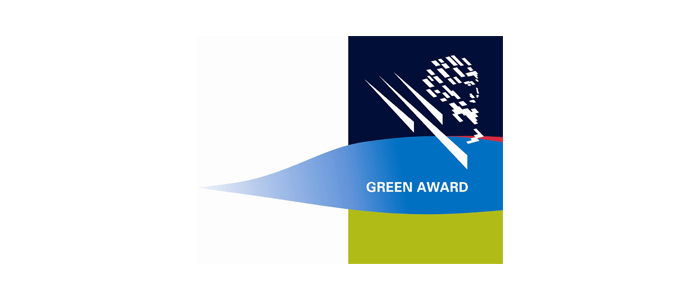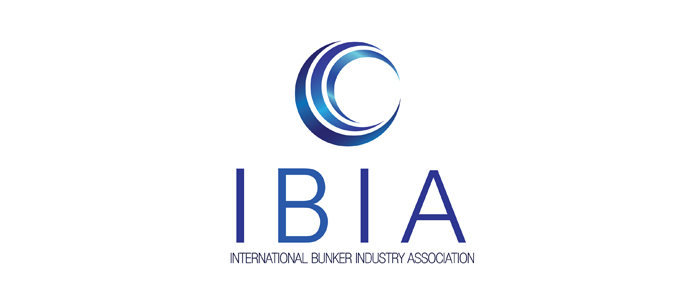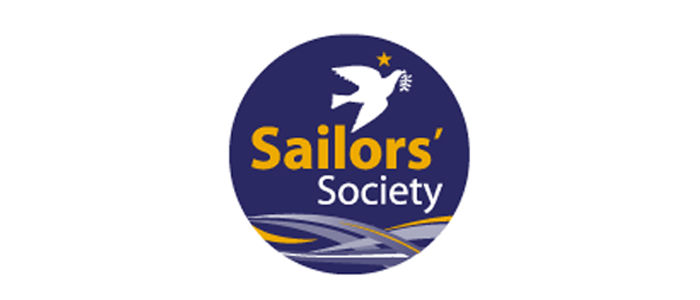1st SAFETY4SEA London Forum
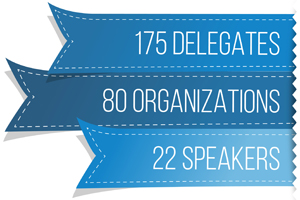 |
The 2019 SAFETY4SEA London Forum successfully concluded on Thursday 28th of March, at the Hellenic Centre in London, UK, attracting 175 delegates from a total of 80 organizations.
Global experts provided insight on industry’s topical issues, discussing key priorities on the path to a more sustainable future and ways to face the safety, environmental and smart shipping challenges. The upcoming 2020 global sulphur cap and industry’s ambitious plans toward decarbonisation were put under the microscope. Also panellists exchanged views with the delegates over cyber threats, risk management and the critical topic of human element
Speaker presentations of the forum in PDF are available online for SAFETY4SEA Plus subscribers
Speaker presentations of the forum in PDF are available online for SAFETY4SEA Plus subscribers
Ian Adams, Executive Director, Clean Shipping Alliance 2020
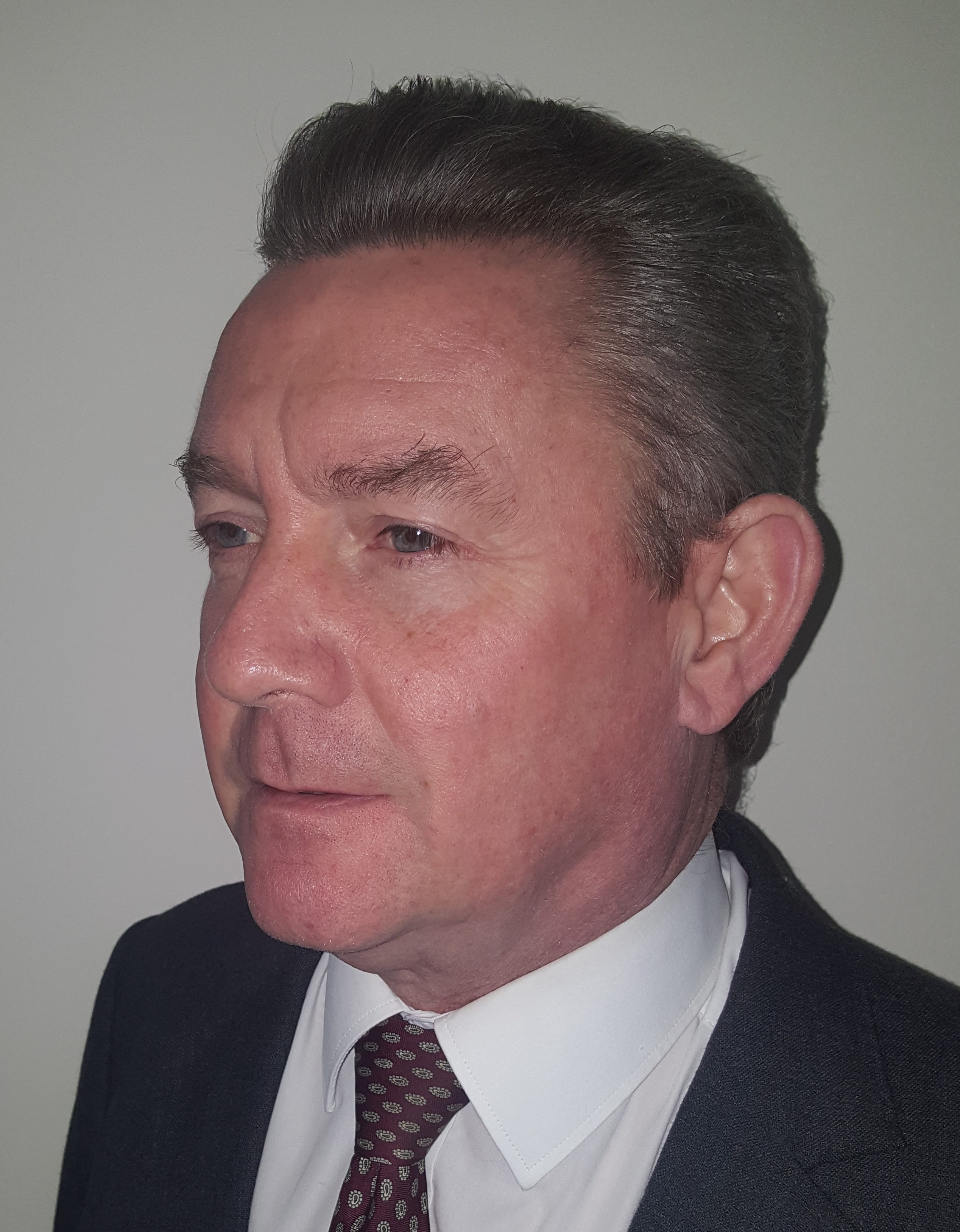
Ian Adams has been involved in the Shipping Industry since 1985 in various capacities, with P&O Cruises, Deep Sea Seals and Hamworthy. He is currently Executive Director of the Clean Shipping Alliance 2020 (CSA 2020) and Managing Director of IMA Marine Ltd. He was appointed Chief Executive of The International Bunker Industry Association (IBIA) in February 2009, after having been its Secretary-General for seven and a half years. During his time there, Ian gained consultative status at the International Maritime Organization (IMO) for IBIA. This resulted in him being involved in the process of the revision of MARPOL Annex VI. He was a member of the IMO Secretary General’s Scientific and Industry Expert Panel during 2007. He left IBIA in July 2011. With his wide experience, Ian continues to be in demand to present at conferences around the world about emissions from ships. He is a Fellow of the Institute of Marine Engineering Science and Technology (IMarEST) and has served on the Council as well as being a Past President of the Southern Joint Branch (SJB) in the United Kingdom.
Founded in 2011, IMA Marine Ltd is a Marine Consultancy providing consultancy, acting as an expert witness, training, research and advice within the marine industry.
Apo Belokas, Managing Editor, SAFETY4SEA
 Apo Belokas is a Maritime Safety, Quality & Environmental Expert, Consultant, Trainer and Project Manager with more than 25 year background in shipping as Technical, Marine, Safety & Training Superintendent and Consultant. He entered the industry back in 1992 as Engineering Superintendent with a leading ship manager operating a mixed fleet of bulk and oil/chemical tankers and later shifted to regulatory compliance and QHSE issues as superintendent and later as a Consultant and Trainer. Apo has successfully completed a wide range of QHSE projects including 250+ management system projects (ISM/ISO 9001-14001-18001/TMSA/MLC), 500 vessel and office audits to various standards and he has trained more than 8,000 people in a wide variety of QHSE subjects. He is holding Mechanical Engineering Bachelor and Master’s specialising in Energy & Environment and Master’s Degrees in Maritime Business and Business Administration (MBA), all of them awarded with the highest distinction. Apo is the Managing Director of SQE MARINE & SQE ACADEMY and he is also the Founder and Managing Editor of SAFETY4SEA.
Apo Belokas is a Maritime Safety, Quality & Environmental Expert, Consultant, Trainer and Project Manager with more than 25 year background in shipping as Technical, Marine, Safety & Training Superintendent and Consultant. He entered the industry back in 1992 as Engineering Superintendent with a leading ship manager operating a mixed fleet of bulk and oil/chemical tankers and later shifted to regulatory compliance and QHSE issues as superintendent and later as a Consultant and Trainer. Apo has successfully completed a wide range of QHSE projects including 250+ management system projects (ISM/ISO 9001-14001-18001/TMSA/MLC), 500 vessel and office audits to various standards and he has trained more than 8,000 people in a wide variety of QHSE subjects. He is holding Mechanical Engineering Bachelor and Master’s specialising in Energy & Environment and Master’s Degrees in Maritime Business and Business Administration (MBA), all of them awarded with the highest distinction. Apo is the Managing Director of SQE MARINE & SQE ACADEMY and he is also the Founder and Managing Editor of SAFETY4SEA.
Capt. Mark Bull , Principal, Trafalgar Navigation
 I commenced my career in 1970 as a cadet with P&O S.N. Co. I spent the next 27 years at sea, with a 2 year sabatical in the late 1980s when I trained, qualified and practiced as a techer of English as a 2nd language. After 5 years in command, I came ashore qualified as an ISM and ISO lead auditor and joined a large ship management company ending up as the QM/DPA for a large fleet and 3 offices. After a brief spell as a consultant, I then moved to London where I became the Loss Prevention Manager of an IG P&I Club. Since 2012 I have been an independent consultant and have now started my own company Trafalgar Navigation dedicated to Navigational Audits, Assessments and Inspections.
I commenced my career in 1970 as a cadet with P&O S.N. Co. I spent the next 27 years at sea, with a 2 year sabatical in the late 1980s when I trained, qualified and practiced as a techer of English as a 2nd language. After 5 years in command, I came ashore qualified as an ISM and ISO lead auditor and joined a large ship management company ending up as the QM/DPA for a large fleet and 3 offices. After a brief spell as a consultant, I then moved to London where I became the Loss Prevention Manager of an IG P&I Club. Since 2012 I have been an independent consultant and have now started my own company Trafalgar Navigation dedicated to Navigational Audits, Assessments and Inspections.
Manit Chander, CEO, HiLo Maritime Risk Management
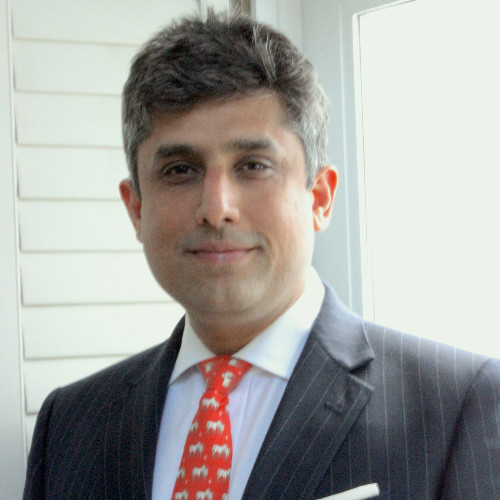 After almost 2 decades aboard Tankers, including as a Master Mariner, Manit worked as an independent consultant managing cost efficiency, sales optimisation and growth strategy. Manit moved into Shell Shipping & Maritime as Strategy Manager where he began to develop HiLo. As HiLo CEO, and a sailor himself, Manit is passionate about championing the needs and safety of seafarers. Manit holds an MBA from London Business School in Strategy and Finance.
After almost 2 decades aboard Tankers, including as a Master Mariner, Manit worked as an independent consultant managing cost efficiency, sales optimisation and growth strategy. Manit moved into Shell Shipping & Maritime as Strategy Manager where he began to develop HiLo. As HiLo CEO, and a sailor himself, Manit is passionate about championing the needs and safety of seafarers. Manit holds an MBA from London Business School in Strategy and Finance.
Martin Dorsman, Secretary-General, ECSA
 Mr. Marin Dorsman has been appointed as ECSA, European Community Shipowners’ Secretary General in Brussels. Mr. Dorsman since November 2017. Mr. Dorsman transfered to ECSA from the Royal Association of Netherlands Shipowners (KVNR) where he has held the position of Managing Director since 2011. Before taking that position he worked for five years as the association’s Deputy Managing Director. He has a Doctorate Degree in Macro Economic Policy and over 30 years of experience of different leadership roles and a sound knowledge of shipping. Prior to his time at the Royal Association of Netherlands Shipowners he worked as a civil servant for the Dutch Government, including six years at the shipping policy department. Mr. Dorsman has also contributed to the work of organisations such as the International Chamber of Shipping, the European Sustainable Shipping Forum and has chaired ECSA’s Shipping Policy Committee and Taxation Working Group.
Mr. Marin Dorsman has been appointed as ECSA, European Community Shipowners’ Secretary General in Brussels. Mr. Dorsman since November 2017. Mr. Dorsman transfered to ECSA from the Royal Association of Netherlands Shipowners (KVNR) where he has held the position of Managing Director since 2011. Before taking that position he worked for five years as the association’s Deputy Managing Director. He has a Doctorate Degree in Macro Economic Policy and over 30 years of experience of different leadership roles and a sound knowledge of shipping. Prior to his time at the Royal Association of Netherlands Shipowners he worked as a civil servant for the Dutch Government, including six years at the shipping policy department. Mr. Dorsman has also contributed to the work of organisations such as the International Chamber of Shipping, the European Sustainable Shipping Forum and has chaired ECSA’s Shipping Policy Committee and Taxation Working Group.
Dustin Eno, COO, Navigate Response
 Dustin has over 12 years of communications experience including as the head of crisis communications for the largest wildfire management centre in British Columbia, Canada. In this role he managed media and social media relations for destructive wildfires and property loss, routinely filling the Information Officer role in the incident command system.Dustin has a Bachelor of Arts and Sciences degree (BASc) specialising in audience engagement and political rhetoric and a master’s degree in communications (MSc) from the London School of Economics (LSE).
Dustin has over 12 years of communications experience including as the head of crisis communications for the largest wildfire management centre in British Columbia, Canada. In this role he managed media and social media relations for destructive wildfires and property loss, routinely filling the Information Officer role in the incident command system.Dustin has a Bachelor of Arts and Sciences degree (BASc) specialising in audience engagement and political rhetoric and a master’s degree in communications (MSc) from the London School of Economics (LSE).
Dustin specialises in crisis reputation management and while at LSE developed computer models for tracking reputation in the online and print media. As Navigate Response’s Chief Operating Officer (COO) and Crisis Response Manager, Dustin manages the media response for numerous shipping incidents, coordinates the operations of our global network and is one of the company’s lead media trainers. In addition to his crisis communication experience, Dustin has a background in public relations and has held several positions on the boards of directors for charitable organisations. Dustin is also an award winning workshop presenter and public speaker.
Steve Esau, General Manager, SEA/LNG
 Steve is General Manager at SEA\LNG. Before taking up his position at SEA\LNG Steve was Head of Energy at Xyntéo. He began his career as a Geophysicist in BP, subsequently working in a variety of business development, strategy and analysis roles in the company’s gas, power & renewables and energy trading businesses. Steve has also worked in the City of London, for a commodity futures market, leading the development of financial instruments for the energy sector and for management consultants Pöyry Energy and Caminus Energy, where he specialised in providing advice on Carbon Capture and Storage (CCS); gas and power market policy; and commodity trading and risk management.
Steve is General Manager at SEA\LNG. Before taking up his position at SEA\LNG Steve was Head of Energy at Xyntéo. He began his career as a Geophysicist in BP, subsequently working in a variety of business development, strategy and analysis roles in the company’s gas, power & renewables and energy trading businesses. Steve has also worked in the City of London, for a commodity futures market, leading the development of financial instruments for the energy sector and for management consultants Pöyry Energy and Caminus Energy, where he specialised in providing advice on Carbon Capture and Storage (CCS); gas and power market policy; and commodity trading and risk management.
Diane Gilpin, Founder/CEO, Smart Green Shipping Alliance
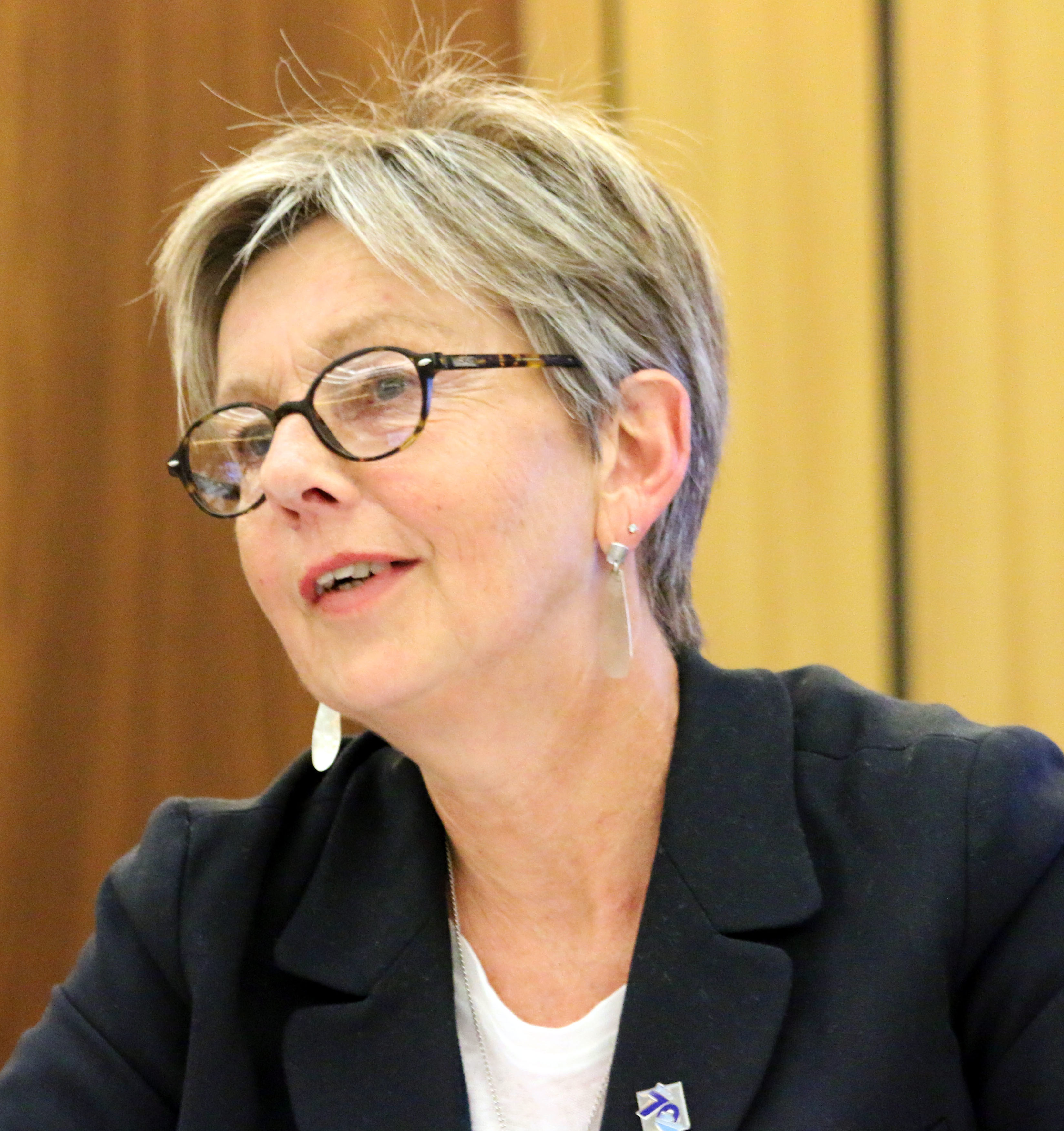 Diane Gilpin leads The Smart Green Shipping Alliance, SGSA, a collaborative industry initiative designed to develop technically, commercially and environmentally superior systems solutions for shipping.
Diane Gilpin leads The Smart Green Shipping Alliance, SGSA, a collaborative industry initiative designed to develop technically, commercially and environmentally superior systems solutions for shipping.
SGSA is leading a collaborative technical feasibility study, from which it will prepare the Business Case, for retrofitting dry bulk ships with wind-assist devices. Project partners include Drax, the UK’s largest renewable power generator, and shipowners, UltraBulk.
SGSA accelerates commercially viable solutions through transferring technology and knowledge from offshore yacht racing, F1, renewable energy, aviation and defence to complement deep commercial maritime expertise. It includes the Institution of Mechanical Engineers (IMechE), Humphreys Yacht Design, Lloyds Register, Group Partners, University of Southampton, Willis Towers Watson, Cammell Laird and Capital Law.
Dr. Kostas G. Gkonis, Secretary General, INTERCARGO
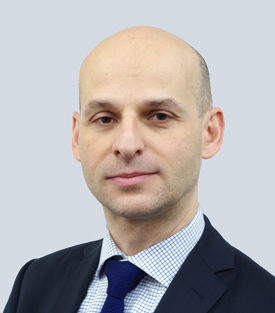 Dr Kostas G. GKONIS is the Secretary General of INTERCARGO. The Association was established in 1980 representing the interests of dry cargo vessel owners and it has had NGO consultative status at the International Maritime Organization (IMO) since 1993. INTERCARGO provides the forum where quality dry bulk shipowners, managers and operators are informed about and discuss key topics and regulatory challenges, promoting best practices in relation to safety, the environment and operational excellence. Dr Gkonis’ career has been devoted to the sustainable evolution of the shipping industry in the face of its current and future challenges. He holds a PhD in Maritime Transport from the National Technical University of Athens – NTUA (Laboratory for Maritime Transport, School of Naval Architecture & Marine Engineering), a M.Sc. in International Business (Manchester School of Management, UMIST) and a M.Eng. in Mechanical Engineering with specialisation in energy (NTUA).
Dr Kostas G. GKONIS is the Secretary General of INTERCARGO. The Association was established in 1980 representing the interests of dry cargo vessel owners and it has had NGO consultative status at the International Maritime Organization (IMO) since 1993. INTERCARGO provides the forum where quality dry bulk shipowners, managers and operators are informed about and discuss key topics and regulatory challenges, promoting best practices in relation to safety, the environment and operational excellence. Dr Gkonis’ career has been devoted to the sustainable evolution of the shipping industry in the face of its current and future challenges. He holds a PhD in Maritime Transport from the National Technical University of Athens – NTUA (Laboratory for Maritime Transport, School of Naval Architecture & Marine Engineering), a M.Sc. in International Business (Manchester School of Management, UMIST) and a M.Eng. in Mechanical Engineering with specialisation in energy (NTUA).
Michael Greenwood , Legal and Claims Manager, Hellenic Mutual War Risks Association
 Michael is a qualified English law solicitor, specialising in shipping. Michael trained at a major international law firm where he enjoyed a secondment to its Athens office. Following qualification in 2009, Michael practiced shipping law in London before joining Thomas Miller in 2013 as a Senior Claims Executive for P&I and FDD matters. In 2017, Michael joined Thomas Miller War Risks Services as Claims and Legal Manager. Michael has a BA in Modern History from St. Anne’s College, Oxford.
Michael is a qualified English law solicitor, specialising in shipping. Michael trained at a major international law firm where he enjoyed a secondment to its Athens office. Following qualification in 2009, Michael practiced shipping law in London before joining Thomas Miller in 2013 as a Senior Claims Executive for P&I and FDD matters. In 2017, Michael joined Thomas Miller War Risks Services as Claims and Legal Manager. Michael has a BA in Modern History from St. Anne’s College, Oxford.
Leif Pentti Halvorsen, VP Product, Kongsberg Digital
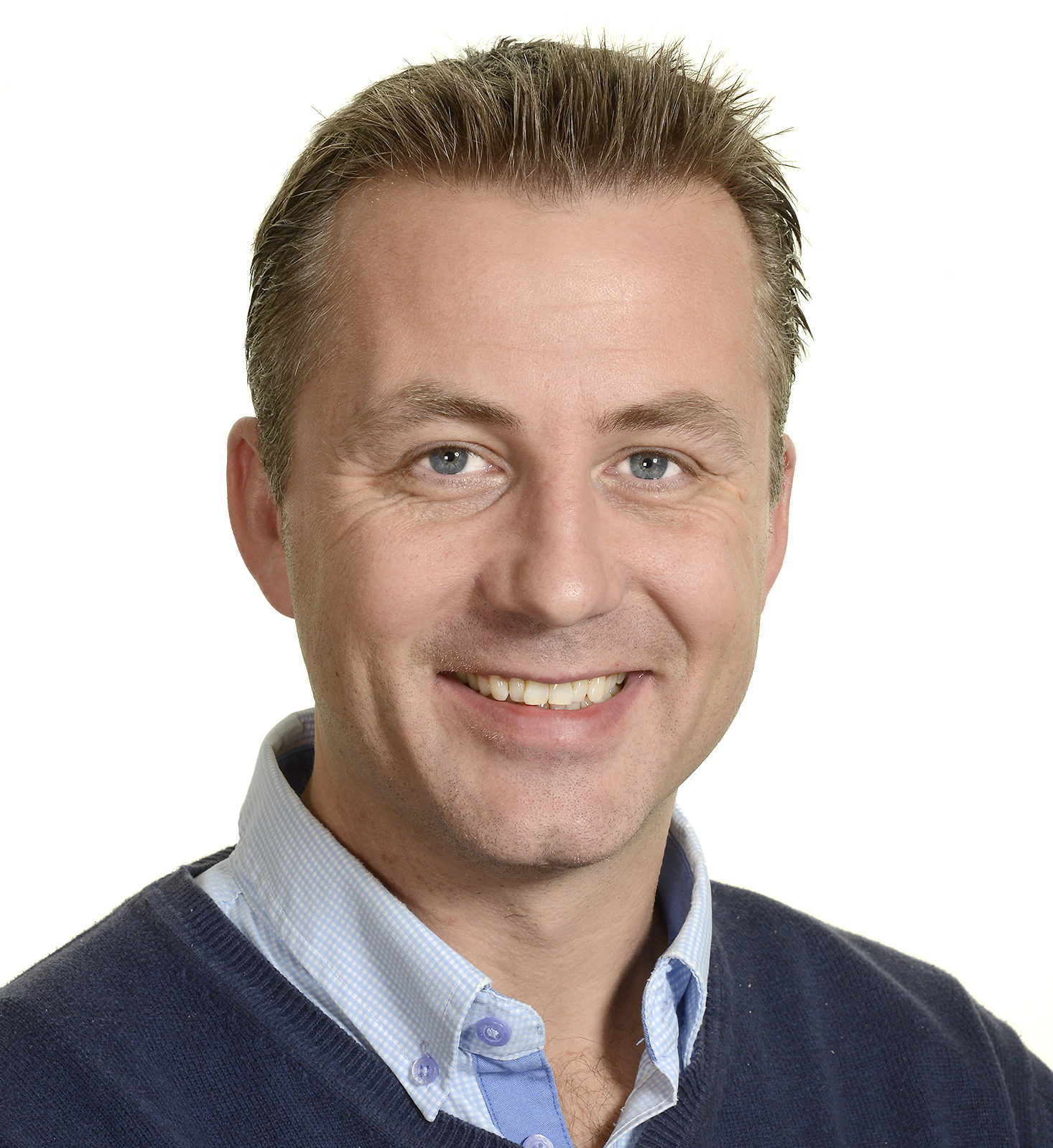 Experienced Product Manager with a demonstrated history of working in the information technology, maritime simulation and cruise industry. Skilled in Maritime Training , Navy, Inspection, Safety Management Systems, Sales and Marine Engineering. Holder of a valid Chief Engineer licence. 10 years’ service as Marine Engineer.
Experienced Product Manager with a demonstrated history of working in the information technology, maritime simulation and cruise industry. Skilled in Maritime Training , Navy, Inspection, Safety Management Systems, Sales and Marine Engineering. Holder of a valid Chief Engineer licence. 10 years’ service as Marine Engineer.
David Hammond, Founder and Trustee, Human Rights at Sea
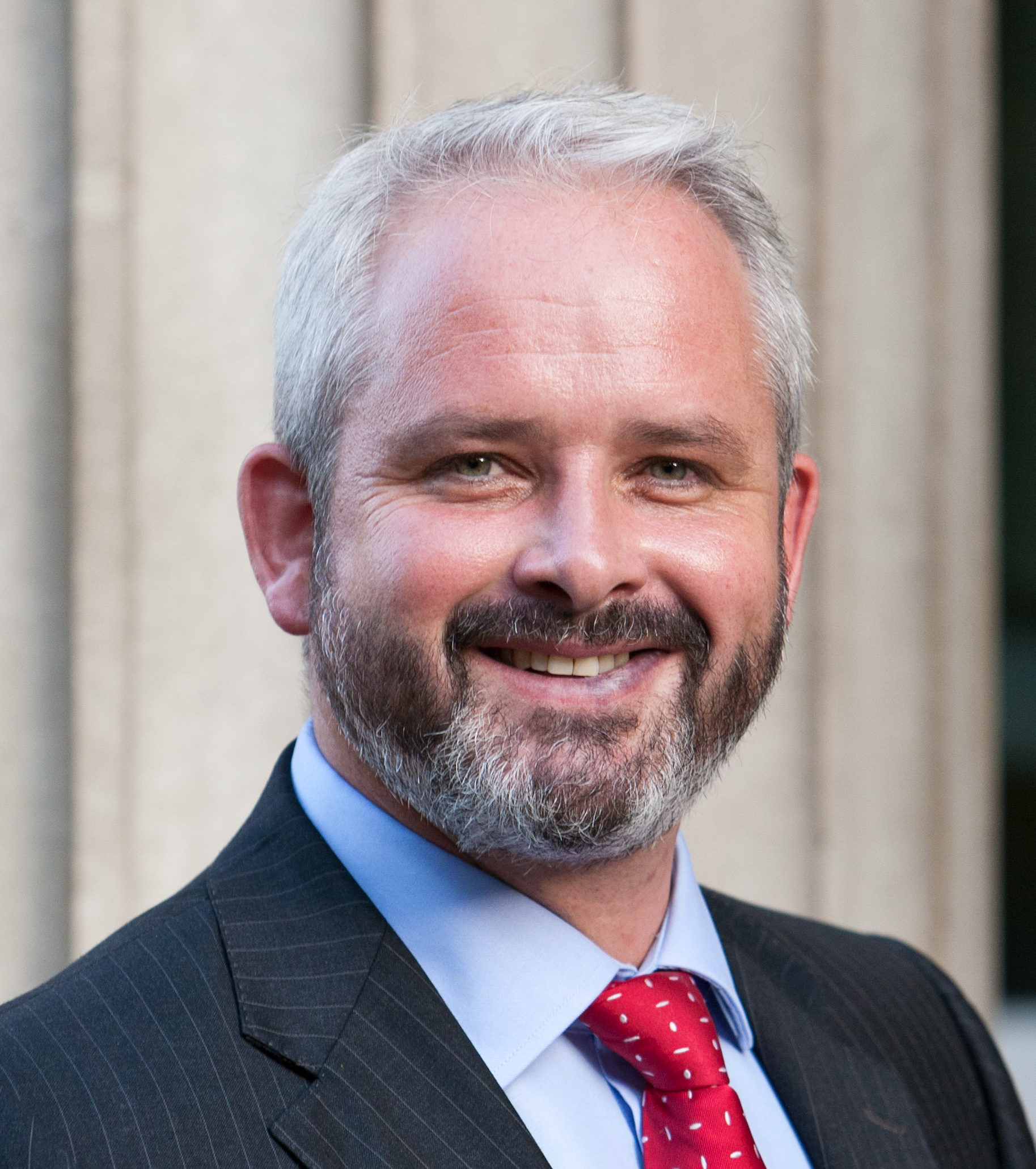 David’s international advisory work has been recognised and used by the UK Government, the UN and European institutions. His work has been quoted by and he has presented in the European Parliament. He has published and co-authored numerous human rights publications and has been instructed in leading legal and advisory roles for European Union Missions around the world. Between 2015-2017, David led the International Humanitarian and Human Rights Law training programme for the EU Training Mission in Mali on behalf of the UK Government as a non-practising barrister, while concurrently running the charity in his spare time backed by a support team both in the UK and abroad. David was also a judge for the 2016 Lloyds List Global Awards for the maritime industry. In October 2017, David stepped down from the CEO role to become a Trustee of the charity having accepted the appointment to be the Executive Director of an independent philanthropic Swiss Foundation for Eliminating Child Labour in Tobacco Growing (ECLT) where he is responsible for the internal transformation, and increased professionalisation, delivery and impact of the Foundation’s work globally.
David’s international advisory work has been recognised and used by the UK Government, the UN and European institutions. His work has been quoted by and he has presented in the European Parliament. He has published and co-authored numerous human rights publications and has been instructed in leading legal and advisory roles for European Union Missions around the world. Between 2015-2017, David led the International Humanitarian and Human Rights Law training programme for the EU Training Mission in Mali on behalf of the UK Government as a non-practising barrister, while concurrently running the charity in his spare time backed by a support team both in the UK and abroad. David was also a judge for the 2016 Lloyds List Global Awards for the maritime industry. In October 2017, David stepped down from the CEO role to become a Trustee of the charity having accepted the appointment to be the Executive Director of an independent philanthropic Swiss Foundation for Eliminating Child Labour in Tobacco Growing (ECLT) where he is responsible for the internal transformation, and increased professionalisation, delivery and impact of the Foundation’s work globally.
Dana Jongens, Safety Services Manager, Inmarsat Maritime
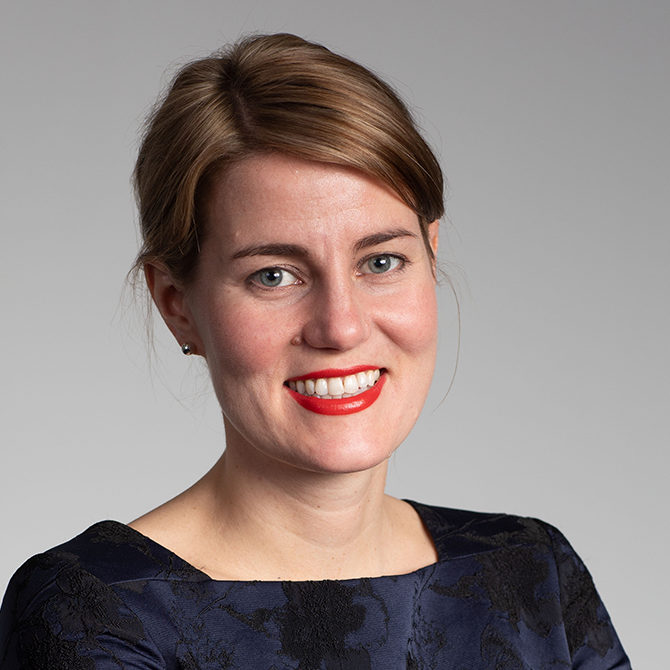 Dana Jongens is Safety Services Manager at Inmarsat Maritime, responsible for ensuring Inmarsat’s continued provision of consistently high quality satellite communication services for maritime safety of life at sea and maritime security taking advantage of new and innovative technical developments in these specific areas. As part of her role, Dana supported the successful application of Fleet Safety for GMDSS Recognition. Every single day, hundreds of thousands of seafarers place their trust in Inmarsat’s safety services, knowing that it will be there when it matters most. Dana has over 10 years of experience in the maritime industry and before joining Inmarsat, Dana held business development positions at various organizations within the port of Rotterdam and London. Dana has a Master degree in International Business from Tilburg University and studied at BI Norwegian Business School in Oslo. She resides in the United Kingdom and is based at Inmarsat’s London headquarters.
Dana Jongens is Safety Services Manager at Inmarsat Maritime, responsible for ensuring Inmarsat’s continued provision of consistently high quality satellite communication services for maritime safety of life at sea and maritime security taking advantage of new and innovative technical developments in these specific areas. As part of her role, Dana supported the successful application of Fleet Safety for GMDSS Recognition. Every single day, hundreds of thousands of seafarers place their trust in Inmarsat’s safety services, knowing that it will be there when it matters most. Dana has over 10 years of experience in the maritime industry and before joining Inmarsat, Dana held business development positions at various organizations within the port of Rotterdam and London. Dana has a Master degree in International Business from Tilburg University and studied at BI Norwegian Business School in Oslo. She resides in the United Kingdom and is based at Inmarsat’s London headquarters.
Chronis Kapalidis, Cyber Expert, Hudson Analytix
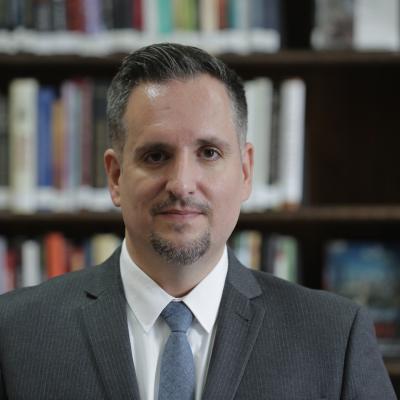
Chronis Kapalidis is the European Representative of Hudson Analytix, promoting the company’s synergies in Europe on issues related to security, both physical and cyber. He recently concluded a fellowship at the International Security Department, Chatham House, on maritime cybersecurity, where he now stands as Academy Associate. He also stands as visiting research fellow at the Dartmouth Centre for Seapower and Strategy at Plymouth University, and as a board member in several academic and scientific bodies.
Chronis was an officer at the Hellenic Navy for 20 years. He was specialised on operations, communications, intelligence and IT infrastructure, while participating in several NATO, EU and UN operations. His research interests include cybersecurity, defence studies, international and maritime security.
He has published widely for Foreign Affairs, Chatham House, International Affairs, the Academy for Strategic Analyses, has been interviewed by The New York Times, the Independent and The Wall Street Journal and has participated in several maritime and cybersecurity related conferences and forums. Chronis has competed several projects at Chatham House on Cybersecurity for Critical National Infrastructure, in general, and the maritime sector specifically. He recently created the first digital learning course on maritime cybersecurity for Lloyd’s Maritime Academy.
He is currently based at the University of Warwick, where he is pursuing his doctoral degree on cyber risk quantification for the maritime sector. He holds an MA in International Relations and Global Security from Plymouth University, a PGCert in Defence Management and Leadership from the Hellenic Naval War College and BSc in Naval Warfare from the Hellenic Naval Academy, along with several professional certificates
Teemu Manderbacka, Senior R&D Engineer, NAPA
 Teemu Manderbacka, holds a Doctor of Science in Naval Architecture. He works currently at NAPA Shipping Solutions as Senior R&D Engineer developing methods for the assessment of ship technical performance applying the naval architecture principles with statistical methods of big data processing. Prior to joining NAPA Ltd, in Jan 2016, he worked at the Aalto University, as laboratory manager of the Seakeeping and Ice Model Basin, carrying out model tests of the ice going performance of the vessels. He has obtained the doctoral degree at the Aalto University on the numerical modelling of hydrodynamics of ship flooding, including the interaction of sloshing and ship motions. His current interest is to advance Safety and Energy of Marine Transportation by combining hydrodynamics and ship design knowledge with data of the ship operations. He is actively participating to the discussion of scientific community. He has over ten years of experience in ship hydrodynamics and have authored several publications on the intact and damaged ship hydrodynamics.
Teemu Manderbacka, holds a Doctor of Science in Naval Architecture. He works currently at NAPA Shipping Solutions as Senior R&D Engineer developing methods for the assessment of ship technical performance applying the naval architecture principles with statistical methods of big data processing. Prior to joining NAPA Ltd, in Jan 2016, he worked at the Aalto University, as laboratory manager of the Seakeeping and Ice Model Basin, carrying out model tests of the ice going performance of the vessels. He has obtained the doctoral degree at the Aalto University on the numerical modelling of hydrodynamics of ship flooding, including the interaction of sloshing and ship motions. His current interest is to advance Safety and Energy of Marine Transportation by combining hydrodynamics and ship design knowledge with data of the ship operations. He is actively participating to the discussion of scientific community. He has over ten years of experience in ship hydrodynamics and have authored several publications on the intact and damaged ship hydrodynamics.
Dimitris Maniatis, Chief Commercial Officer, Diaplous Maritime Security
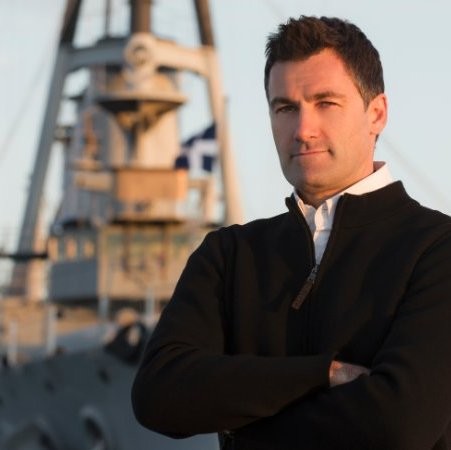 Dimitris has a comprehensive background on security in hostile regions which started right after his days with the Hellenic Navy. Starting in 2000 and under contract with the Hellenic Ministry of Foreign Affairs, he spent 7 years in Afghanistan and Pakistan, fulfilling various roles in support of European Intelligence Agencies, ISAF, UN Organizations and more. During the first years of his involvement in Central Asia operations, he managed the security and logistics of all Hellenic NGO’s operating region wide and lead missing persons recovery missions in the Hindukush. Dimitris also participated under contract, on missions in Cambodia, Egypt, The Balkan Region, The Middle East and Africa. In 2009 the menace of Somali Based Piracy was at its height and Dimitris was given the opportunity to emerge in this new industry called Maritime Security. After completing specialized training, he joined the ranks of the Armed Security Teams safe guarding vessels in the Indian Ocean HRA and became Team Leader shortly after. While performing these duties he continued his university education by completing an MBA on shipping which in 2013 allowed him to immerse in the business side of the maritime security industry. In his role as Chief Commercial Officer of Diaplous Maritime Services his focus is mainly on the design, development and implementation of the company’s commercial strategy, meeting the goals and growth set. The above goes hand in hand with new business development, compliance, quality and making sure everyone has a positive experience getting the job done in a safe, ethical and honorable manor.
Dimitris has a comprehensive background on security in hostile regions which started right after his days with the Hellenic Navy. Starting in 2000 and under contract with the Hellenic Ministry of Foreign Affairs, he spent 7 years in Afghanistan and Pakistan, fulfilling various roles in support of European Intelligence Agencies, ISAF, UN Organizations and more. During the first years of his involvement in Central Asia operations, he managed the security and logistics of all Hellenic NGO’s operating region wide and lead missing persons recovery missions in the Hindukush. Dimitris also participated under contract, on missions in Cambodia, Egypt, The Balkan Region, The Middle East and Africa. In 2009 the menace of Somali Based Piracy was at its height and Dimitris was given the opportunity to emerge in this new industry called Maritime Security. After completing specialized training, he joined the ranks of the Armed Security Teams safe guarding vessels in the Indian Ocean HRA and became Team Leader shortly after. While performing these duties he continued his university education by completing an MBA on shipping which in 2013 allowed him to immerse in the business side of the maritime security industry. In his role as Chief Commercial Officer of Diaplous Maritime Services his focus is mainly on the design, development and implementation of the company’s commercial strategy, meeting the goals and growth set. The above goes hand in hand with new business development, compliance, quality and making sure everyone has a positive experience getting the job done in a safe, ethical and honorable manor.
Jad Mouawad, CEO, Mouawad Consulting

Jad Mouawad is a Naval Architect, graduated in 2005 from the Norwegian University of Marine and Technology (NTNU). He has since had several positions in the maritime industry, first at the Norwegian Maritime Administration (NMA), before joining DNV GL where he started and developed their class services for Ballast Water Management. In 2013, Jad Mouawad founded Mouawad Consulting which has become a major engineering and consultancy firm specialized in Ballast Water Management, with offices in Norway, China, Korea, Panama and Lebanon. Jad Mouawad issued type approval certificates for more than 11 Ballast Water Management Systems (BWMS) and initiated the development of the first DNV GL rules for installation of BWMS onboard ships. He also contributes heavily to the development of the guidelines of the BWM Convention, developed at the International Maritime Organization (IMO) as an advisor to NMA, and represents Norway in the ISO Technical Committee dealing with standards for BWM.
Elias Psyllos, VP Commercial and Risk Management, T&T Salvage
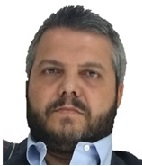 Elias Psyllos is the Vice President of the Commercial and Risk Management Department of T&T Salvage based in Houston Texas. He is responsible for commercial, legal, and technical support to daily global company operations. He supports business development and client relationship management activities. He also oversees internal insurance and risk management matters to include policy management and claims reporting and acts as Project Manager on company operations. Prior experience includes 15 years as a Risk Manager for a London-Greek Shipowning Group. He was overall responsible for the Group’s Marine Insurance and claims. For 4 years he served as a member of the Group’s Marine Operations Team, actively involved in the management of Oil Tanker and Bulk Carrier fleets.
Elias Psyllos is the Vice President of the Commercial and Risk Management Department of T&T Salvage based in Houston Texas. He is responsible for commercial, legal, and technical support to daily global company operations. He supports business development and client relationship management activities. He also oversees internal insurance and risk management matters to include policy management and claims reporting and acts as Project Manager on company operations. Prior experience includes 15 years as a Risk Manager for a London-Greek Shipowning Group. He was overall responsible for the Group’s Marine Insurance and claims. For 4 years he served as a member of the Group’s Marine Operations Team, actively involved in the management of Oil Tanker and Bulk Carrier fleets.
Christopher Saunders, Vetting Superintendent, RightShip
 Christopher is a Master Mariner with extensive LNG sector oil major experience with both Shell and Chevron. He joined Rightship’s London team as a Vetting Superintendent in January 2018 from MOL LNG Europe where he was involved in the challenging Yamal Arctic LNG Project as a Marine Superintendent. He is passionate about the challenge of improving Maritime Standards and Seafarer Safety and the increasing role technology has to play in this.
Christopher is a Master Mariner with extensive LNG sector oil major experience with both Shell and Chevron. He joined Rightship’s London team as a Vetting Superintendent in January 2018 from MOL LNG Europe where he was involved in the challenging Yamal Arctic LNG Project as a Marine Superintendent. He is passionate about the challenge of improving Maritime Standards and Seafarer Safety and the increasing role technology has to play in this.
As part of RightShip’s London team, Christopher assists customers in managing marine risk by identifying and eliminating substandard ships from their supply chain, whilst improving overall maritime safety standards in the industry.
Outside of work Christopher enjoys motorsports, cooking and reading – particularly novels by John Grisham and Wilbur Smith.
Sandra Welch, Deputy CEO, Sailors’ Society
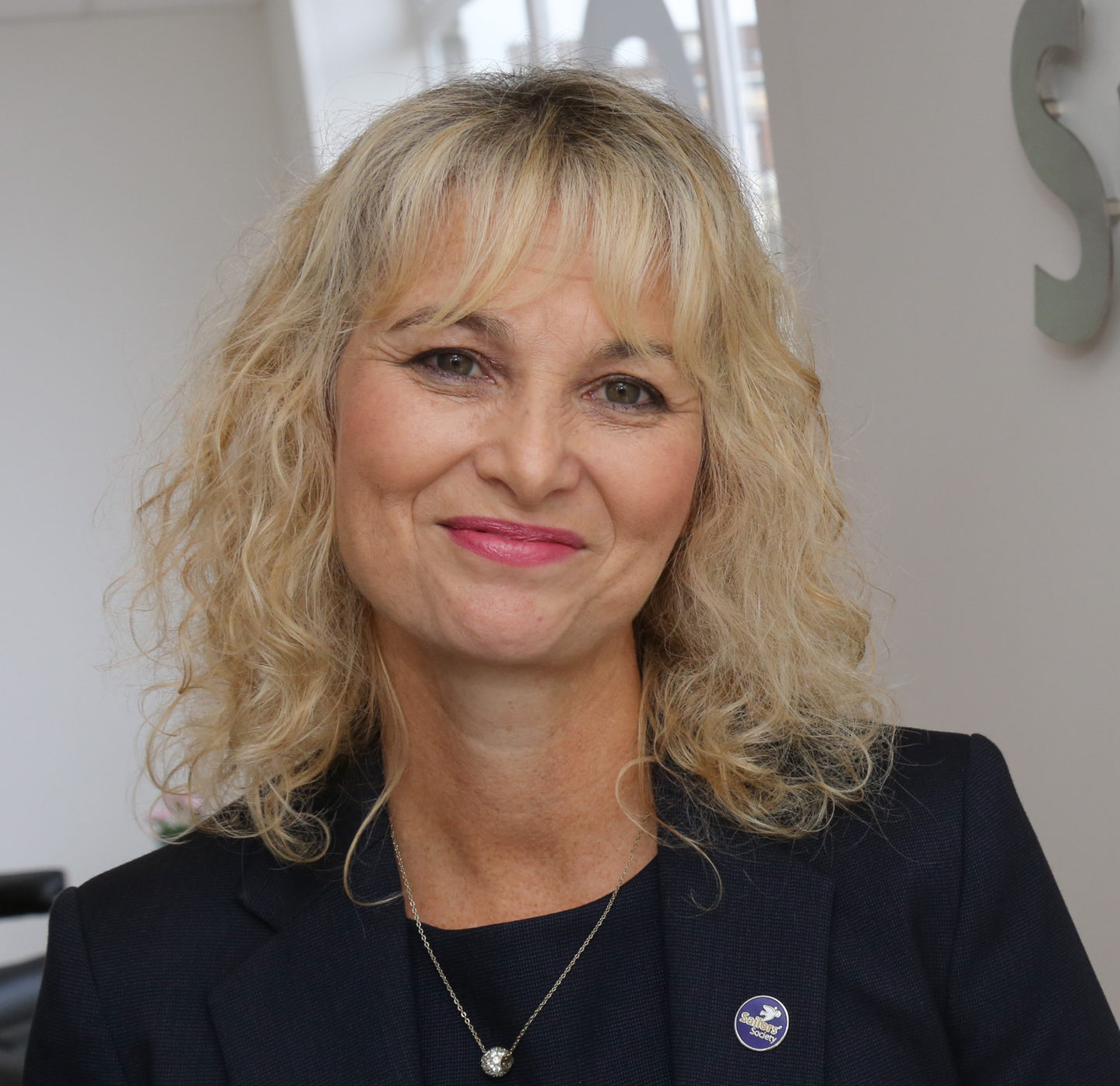
In addition to her role as Deputy CEO, Sandra leads Sailors’ Society’s programme team, overseeing the charity’s network of port chaplains and project work, including the award-winning Wellness at Sea programme.
Sandra previously served more than 18 years with The Salvation Army, including as Assistant Projects Secretary for The Salvation Army’s community development projects in Southern Africa and more recently as International Editor-in-Chief and Editor of three international periodicals. She has also worked as a chaplain in a variety of settings including as a hospital chaplain and a school chaplain.
Gurpreet S. Singhota, Senior Adviser, SMA for the STM Validation Project
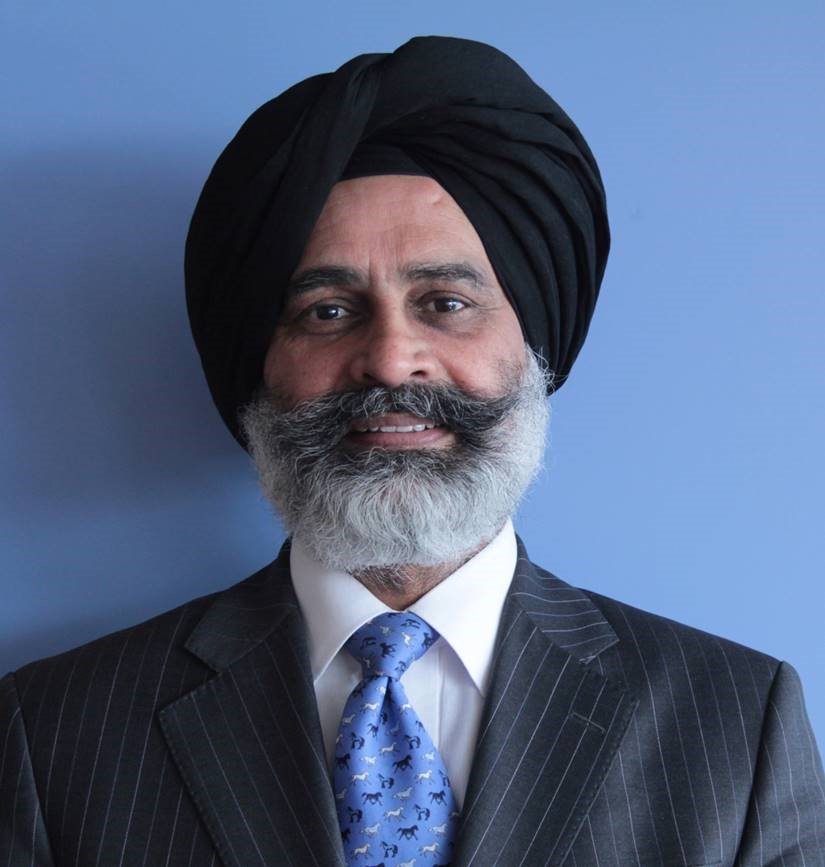 Ex-Dufferin (1968-1970); Master Mariner with 14 years of seagoing experience, including six years of command experience on a variety of vessels complemented by a M.Sc. degree course at Cranfield University (1984-1986), United Kingdom.
Ex-Dufferin (1968-1970); Master Mariner with 14 years of seagoing experience, including six years of command experience on a variety of vessels complemented by a M.Sc. degree course at Cranfield University (1984-1986), United Kingdom.
‘ Fellow of the Nautical Institute, London, United Kingdom
‘ Member of the Think Tank Morski, Poland
Worked with IMO (United Nations), London, United Kingdom over a period of more than 26 years. Retired as Deputy Director/Head, Operational Safety Section, Maritime Safety Division; Secretary of the Sub-Committee on Safety of Navigation (NAV) with responsibility for both the NAV and the Sub-Committee on Radiocommunications Search and Rescue (COMSAR) including the development of IMO’s e-navigation Strategy Implementation Plan (SIP) plus the review of the Global Maritime Distress Safety System (GMDSS). This involved dealing at an international level on matters related to safety of navigation, radiocommunications, search and rescue including the establishment of the Long-range Identification and Tracking (LRIT) of ships system.
Important achievements have included:
. Actively involved in the revision of SOLAS Chapter V on Safety of Navigation;
. Guiding the development of IMO’s e-navigation Strategy Implementation Plan and the development of the Polar Code;
. Development of the ISPS Code and the LRIT system; and
. Active participation in IMO’s activities related to maritime security and the prevention of piracy and armed robbery against ships.
In addition, undertook many technical advisory missions to various Member Governments on maritime safety issues. In 2011, was specifically deputed by the Secretary-General of IMO to advise the Indian Government on improving the navigational safety for Mumbai and Nhava Sheva ports.
Additional experience in the Technical Co-operation and the Marine Environment Divisions, which involved technical assistance to developing countries including oil spill preparedness and response advice.
Retired in October 2013 and since March 2015,
. Retained by the Swedish Maritime Administration (SMA) as a Senior Adviser for the MONALISA 2.0 project and the follow-up Sea Traffic Management (STM) Validation Project.
. Advising the SMA, Danish Maritime Authority and the Ministry of Oceans and Fisheries, Republic of Korea in the establishment of a global e-navigation test bed.
In parallel, during the period February to July 2016, the Permanent Court of Arbitration, The Hague, The Netherlands appointed me as an International Navigational Safety Expert to assist the Arbitral Tribunal in its consideration in respect of an arbitration commenced by the Republic of the Philippines and the People’s Republic of China concerning the Scarborough Shoal in the South China Sea.
Various papers published on maritime safety and marine pollution issues.
Andrew Stephens, Executive Director, Sustainable Shipping Initiative
 Andrew has a truly international background in the maritime industry, working for leading maritime service providers, in the position of Chief Operating Officer, such as Wilhelmsen Ships Service and Wallem Group, in a career which has seen him working in the UK, UAE, USA, Norway and Hong Kong. He was responsible for leading and managing business transformation, continuous improvement, integration and change management programmes, drive strategic planning and implementation consequently delivering on improved customer satisfaction, business performance and efficiency. After a successful period in both international groups he joined The Sustainable Shipping Initiative in August 2018, where he is responsible for leadership of the Secretariat.
Andrew has a truly international background in the maritime industry, working for leading maritime service providers, in the position of Chief Operating Officer, such as Wilhelmsen Ships Service and Wallem Group, in a career which has seen him working in the UK, UAE, USA, Norway and Hong Kong. He was responsible for leading and managing business transformation, continuous improvement, integration and change management programmes, drive strategic planning and implementation consequently delivering on improved customer satisfaction, business performance and efficiency. After a successful period in both international groups he joined The Sustainable Shipping Initiative in August 2018, where he is responsible for leadership of the Secretariat.
Captain Paul Whyte, MBE AFNI, Shipping Technical Director (Navigation Services), London Offshore Consultants

Captain Paul Whyte MBE AFNI joined LOC in 2012. He is Shipping Technical Director (Navigation Services) based in London and has 37 years’ seagoing and 12 years’ sea command experience.
Paul also qualified as a Royal Navy Specialist Navigator and writes many navigation related articles, and was co-author of the Nautical Institute “Maritime Accidents and Their Causes”.
He has provided expert witness evidence in Court and prepared expert reports for collisions, allisions and groundings, unsafe port disputes, ice navigation damage claims, weather and passage related charterparty disputes, speed and performance disputes, ship-to-ship operations and salvage dangers, as well as personal injury claims.
Paul supports LOC marine investigators that have the capability, expertise and experience to offer a highly professional and technically accurate reconstruction of any collision, allision, grounding or stranding
Diaplous Maritime Services
 Diaplous is a top level security provider for the international maritime community. The company’s core business is Maritime Security in the high risk areas of the globe, safe guarding vessels, crews and valuable cargoes. Diaplous has excelled in all operations undertaken, in all trade sectors and is one of very few companies world wide to have gained the appreciation, respect and approval from the biggest players in the Oil industry, the largest dry sector charterers and ofcourse the ship owning community. Diaplous has expanded and now covers Land Operations through its sister company Diaplous Land Services. The newest addition to company’s operational ability is Diaplous Maritime Services Nigeria that caters to its clients security needs in West Africa and the Gulf of Guinea.
Diaplous is a top level security provider for the international maritime community. The company’s core business is Maritime Security in the high risk areas of the globe, safe guarding vessels, crews and valuable cargoes. Diaplous has excelled in all operations undertaken, in all trade sectors and is one of very few companies world wide to have gained the appreciation, respect and approval from the biggest players in the Oil industry, the largest dry sector charterers and ofcourse the ship owning community. Diaplous has expanded and now covers Land Operations through its sister company Diaplous Land Services. The newest addition to company’s operational ability is Diaplous Maritime Services Nigeria that caters to its clients security needs in West Africa and the Gulf of Guinea.
Hellenic War Risks
 Hellenic War Risks has been providing quality mutual cover to Members for over 50 years. The key to our success is that Members get far more than just insurance: When you take out Hellenic War Risks cover you get expert support and advice all the way. Our Members know that if they have an incident – be it a pirate attack off the coast of Africa, a ship damaged in civil conflict in Indonesia or damage caused by environmentalists in the Arctic, one call will get them the proactive support they need. The Hellenic War Risks Club doesn’t just pay out when you get in trouble. It proactively helps you to tackle any situation from the moment it arises. Over the last 10 years, the Club has helped numerous Members to manage highly charged piracy situations and malicious damage from third parties. We take actions from the start, helping to manage the situation, bringing in experts to support crews, oversee repairs and reclaim ships.
Hellenic War Risks has been providing quality mutual cover to Members for over 50 years. The key to our success is that Members get far more than just insurance: When you take out Hellenic War Risks cover you get expert support and advice all the way. Our Members know that if they have an incident – be it a pirate attack off the coast of Africa, a ship damaged in civil conflict in Indonesia or damage caused by environmentalists in the Arctic, one call will get them the proactive support they need. The Hellenic War Risks Club doesn’t just pay out when you get in trouble. It proactively helps you to tackle any situation from the moment it arises. Over the last 10 years, the Club has helped numerous Members to manage highly charged piracy situations and malicious damage from third parties. We take actions from the start, helping to manage the situation, bringing in experts to support crews, oversee repairs and reclaim ships.
Hudson Analytix
 Hudson Marine works closely with its clients to help them move forward with confidence in today’s technically complex and environmentally sensitive world. Hudson Marine’s comprehensive services encompass all areas of risk management, emergency and regulatory preparedness, incident prevention and response. Our perspective is informed by the technical, operational, commercial, regulatory and environmental factors governing our industry. Our strength is based on our experience and our history. But our success is based on our commitments, our relationships and our ability to help our clients operate more successfully in today’s increasingly challenging industry.
Hudson Marine works closely with its clients to help them move forward with confidence in today’s technically complex and environmentally sensitive world. Hudson Marine’s comprehensive services encompass all areas of risk management, emergency and regulatory preparedness, incident prevention and response. Our perspective is informed by the technical, operational, commercial, regulatory and environmental factors governing our industry. Our strength is based on our experience and our history. But our success is based on our commitments, our relationships and our ability to help our clients operate more successfully in today’s increasingly challenging industry.
Inmarsat
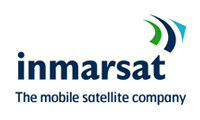 Inmarsat was set up by the International Maritime Organization (IMO) in 1979 to provide a satellite communications network that would protect the lives of mariners anywhere at sea.
Inmarsat was set up by the International Maritime Organization (IMO) in 1979 to provide a satellite communications network that would protect the lives of mariners anywhere at sea.
We were the first satellite operator to meet the stringent requirements of the Global Maritime Distress and Safety System (GMDSS) and the International Civil Aviation Organization (ICAO) for global safety communications.
Today our satellite communication services are not only saving lives but empowering people and communities, enabling business and trade, and supporting humanitarian work in the most remote and challenging locations.
Our customers range from governments and aid agencies to ship owners and airlines – what they share is a need to stay connected at all times, no matter where they are. Our wide range of mobile and fixed satellite communication solutions and partners’ value-added applications deliver all the connectivity they need when they are beyond the reach of terrestrial networks.
Kongsberg Digital – Maritime Simulation
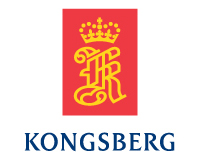 Kongsberg Digital is a business unit of KONGSBERG Group providing the next generation software and digital solutions to customers within maritime, defense, energy and renewables industries.
Kongsberg Digital is a business unit of KONGSBERG Group providing the next generation software and digital solutions to customers within maritime, defense, energy and renewables industries.
In the training world, Kongsberg Digital is a leading supplier of advanced maritime simulators to both commercial and defense training markets worldwide, providing advanced and proven simulation solutions for training on a full range of operations including: bridge (multiple vessel types), dynamic positioning, aft deck, engine room, cargo- and ballast handling, firefighting, search and rescue.
The range of K-Sim simulators are used for education, training and assessment of crew on all levels. They offer realistic and quality training in a wide range of scenarios and is perfect for pre-mission planning, studies and decision support. System flexibility enables customized solutions and expansion at any time to meet the exact training needs of the industry.
NAPA
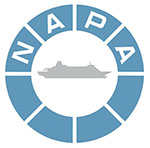 NAPA is a global leader in software, services and data analytics for the maritime industry; providing intelligent solutions for safety, efficiency and productivity in both ship design and operations. NAPA Design Solutions serves the maritime industry by assisting naval architects and structural engineers in design of any floating structure. An integrated 3D design system comprises of industry standard engineering software for hull form, hydrostatics, stability, hydrodynamics and structures in particular for the initial and basic design phases. The major benefit of the solution is the support for all aspects of marine engineering and design on a single 3D product model. NAPA products and services are trusted by leading shipyards, classification societies, engineering offices, maritime authorities and research institutes worldwide. NAPA Shipping Solutions offers advanced tools and services for enhanced ship data management, ship specific and fleet-wide performance analysis, and dynamic optimization decisions for route, speed and trim. The solutions provide ship owners, operators, charterers and various maritime stakeholders increased transparency in ship management and improved technical and operational performance. NAPA Safety Solutions provides advanced loading and stability systems for various kinds of vessels, including integrated, easy to use flooding emergency and decision support solution for increased safety and traceability, especially for cruise line and passenger vessel industry. NAPA Safety Solutions offer ship officers onboard a better understanding of both vulnerability of the intact ship, as well as survivability of a damaged ship. NAPA Logbook approved by several flag states is an electronic logbook for collecting, recording and replicating data to ashore. NAPA operates globally, with eleven offices across Asia, Europe and the Americas supported by its Helsinki headquarters. NAPA has nearly 400 user organizations for its design solutions and 2,500 installations onboard vessels.
NAPA is a global leader in software, services and data analytics for the maritime industry; providing intelligent solutions for safety, efficiency and productivity in both ship design and operations. NAPA Design Solutions serves the maritime industry by assisting naval architects and structural engineers in design of any floating structure. An integrated 3D design system comprises of industry standard engineering software for hull form, hydrostatics, stability, hydrodynamics and structures in particular for the initial and basic design phases. The major benefit of the solution is the support for all aspects of marine engineering and design on a single 3D product model. NAPA products and services are trusted by leading shipyards, classification societies, engineering offices, maritime authorities and research institutes worldwide. NAPA Shipping Solutions offers advanced tools and services for enhanced ship data management, ship specific and fleet-wide performance analysis, and dynamic optimization decisions for route, speed and trim. The solutions provide ship owners, operators, charterers and various maritime stakeholders increased transparency in ship management and improved technical and operational performance. NAPA Safety Solutions provides advanced loading and stability systems for various kinds of vessels, including integrated, easy to use flooding emergency and decision support solution for increased safety and traceability, especially for cruise line and passenger vessel industry. NAPA Safety Solutions offer ship officers onboard a better understanding of both vulnerability of the intact ship, as well as survivability of a damaged ship. NAPA Logbook approved by several flag states is an electronic logbook for collecting, recording and replicating data to ashore. NAPA operates globally, with eleven offices across Asia, Europe and the Americas supported by its Helsinki headquarters. NAPA has nearly 400 user organizations for its design solutions and 2,500 installations onboard vessels.
RIGHTSHIP
 RightShip is the world’s leading maritime risk management and environmental assessment organisation, with offices in London, Melbourne and Houston. With our predictive online ship vetting platform, RightShip Qi, coupled with the maritime expertise of our vetting team, we help our customers to manage marine risk by identifying and eliminating substandard ships from their supply chain, while improving overall maritime safety standards in the industry. Signifying the importance of a transition to a low-carbon economy, RightShip’s Greenhouse Gas Emissions Rating (GHG Rating) has been widely adopted by the maritime industry to measure and recognise the relative CO2 output of individual vessels. The GHG Rating provides a systematic and transparent framework for comparing the relative efficiency of ships, enabling users to select vessels with a lower CO2 footprint and fuel bill. RightShip is a proud carbon-neutral organisation, and in 2017 released their Carbon Accounting tool, giving organisations the ability to measure and manage the carbon emissions associated with their shipping activity.
RightShip is the world’s leading maritime risk management and environmental assessment organisation, with offices in London, Melbourne and Houston. With our predictive online ship vetting platform, RightShip Qi, coupled with the maritime expertise of our vetting team, we help our customers to manage marine risk by identifying and eliminating substandard ships from their supply chain, while improving overall maritime safety standards in the industry. Signifying the importance of a transition to a low-carbon economy, RightShip’s Greenhouse Gas Emissions Rating (GHG Rating) has been widely adopted by the maritime industry to measure and recognise the relative CO2 output of individual vessels. The GHG Rating provides a systematic and transparent framework for comparing the relative efficiency of ships, enabling users to select vessels with a lower CO2 footprint and fuel bill. RightShip is a proud carbon-neutral organisation, and in 2017 released their Carbon Accounting tool, giving organisations the ability to measure and manage the carbon emissions associated with their shipping activity.
RISK4SEA
 RISK4SEA is an online intelligence platform providing inspection analytics, fleet & ship operator benchmarking. Using big data analytics an operator may benchmark his ships, fleet & company against industry standards and get a clear insight of his performance gaps and a roadmap to continually improve.
RISK4SEA is an online intelligence platform providing inspection analytics, fleet & ship operator benchmarking. Using big data analytics an operator may benchmark his ships, fleet & company against industry standards and get a clear insight of his performance gaps and a roadmap to continually improve.
SQE MARINE
 SQE Marine is a leading provider of Safety, Quality and Environmental Solutions providing Consulting, Training and Information products in these areas. We have been successfully providing a product and service range to more than 1,200 clients (based in 75+ countries) over the last 20 years, operating a DNVGL Certified Training Center and a LR ISO 9001 certified management system.
SQE Marine is a leading provider of Safety, Quality and Environmental Solutions providing Consulting, Training and Information products in these areas. We have been successfully providing a product and service range to more than 1,200 clients (based in 75+ countries) over the last 20 years, operating a DNVGL Certified Training Center and a LR ISO 9001 certified management system.
Strong enough to provide immediate response and feedback to all client queries and needs, we provide a range of competitively priced services and timeliness for product / service delivery; we provide foolproof products and services to ensure full after sales support for as long as necessary. Last but not least, technical competence is the core of our management system & operations.
Our vision is to be a leading world class corporation that provides reliable maritime solutions in the areas of Quality, Health, Safety, Environmental, Crisis, Security, and Risk Management. Our mission, therefore, is to provide real life, effective and efficient maritime solutions range including Consulting, Training and Information provision in order to maximize client benefit and minimize risk.
T&T Salvage
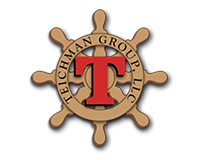 T&T SALVAGE, a member company of the Teichman Group, is committed to serving the emergency response needs of its clients under the highest standards of safety and quality. The Teichman Group since 1957 has grown to become a leading service provider to the international maritime and offshore petroleum industries.
T&T SALVAGE, a member company of the Teichman Group, is committed to serving the emergency response needs of its clients under the highest standards of safety and quality. The Teichman Group since 1957 has grown to become a leading service provider to the international maritime and offshore petroleum industries.
T&T SALVAGE, www.ttsalvage.com, Global response services are supported by salvage stations in Singapore, Rotterdam, Hamburg and South America. The Group owns and maintain a comprehensive inventory of salvage, firefighting systems, ship-to-ship (STS) lightering systems, anti-pollution systems, three-dimensional sonar, ROVs, and advanced diving systems all packaged so it can be rapidly transported by air, land or sea. The portable assets are complemented by floating heavy lift and salvage support vessels ready to meet both routine and emergency response challenges. In addition, the Group includes an in-house design and fabrication department available on a 24 hour basis to support any urgent in-situ needs a field salvage team may have during an operation.
T&T SALVAGE is a Member of the American Salvage Association (ASA), the International Salvage Union (ISU), the North American Environmental Protection Association (NAMEPA) and the Association of Diving Contractors International (ADCI).
- ABS
- Adriatico Crewing Ukraine
- Africa Risk Compliance
- Afzal Co.Ltd.
- Aries Offshore UK
- ARX Maritime
- ASR Group
- AVL UK Ltd
- AWP Marine
- Biofriendly Europe Ltd
- Blue Communications
- Brittany Ferries
- Brookes Bell
- Bucklers Hard Boat Builders Ltd
- CASS Business School
- CEL Logistic System
- CHIRP Maritime
- Clean Shipping Alliance 2020
- Cresta Marine Travel
- Cristina Lança-Advogada
- Diaplous Maritime Security
- Disney Cruise Line
- DNV GL
- East Coast Collage
- ECSA
- EF Realisation Company Ltd
- ELBE Financial Solutions
- EU Naval Force
- Fafalios Ltd
- Federal College of Fisheries And Marine Technology
- Fike
- Future Care
- Gibson Shipbrokers
- Green Shipping Alliance
- Hellenic Mutual War Risks Association
- Hilo Maritime Risk Management
- HudsonAnalytix
- Human Rights At Sea
- IBIA
- IMEQ Center
- INMARSAT
- INTERCARGO
- International Registries (UK) Ltd
- JLA Media
- JPMorgan Asset Management
- Jubilee Sailing Trust
- King’s College London
- Kongsberg Digital
- KVH Videotel
- Lalizas SA
- Latitude B
- Lloyd’s Register
- LMA
- London Offshore Consultants
- Lyras Maritime Ltd.
- Marine Media Enterprises
- Maritime Legal Services Limited
- Michael Kyprianou & Co LLC
- Mouawad Consulting AS
- NAPA
- Navidium
- Navigate PR
- Navigate Response
- NC Group
- Nlng Ship Manning Limited
- Norbulk Shipping UK Ltd
- NYA International Ltd
- OceanManager Inc.
- Olympic Agencies (UK) Ltd
- ORDU University
- Pelion Consulting
- PGS West Africa
- Pole Star Space Applications
- Prisma Electronics
- Q88
- Rightship
- Sailors’ Society
- SEA\LNG
- Seaborne Communications
- Seadock Marine Agencies Ltd
- Seafarers UK
- SeaFocus
- SecureWest International
- ShipServe (International) Inc
- SilverFleet Capital
- Stilvon Traders Ltd
- STM Sea Traffic Management
- Sustainable Shipping Initiative
- T&T Salvage
- Telenor Satellite
- The Chirp Charitable Trust
- TMC
- Trafalgar Navigation
- TST International SA
- UK Chamber of Shipping
- UK P&I Club
- UnitedHealthcare Global
- Vessel Telematics & Systems Ltd
- Wärtsilä
- Watson Farley & Williams LLP
First SAFETY4SEA London Forum focuses on industry’s top priorities from 2020 onwards
The 2019 SAFETY4SEA London Forum successfully concluded on Thursday 28th of March, at the Hellenic Centre in London, UK, attracting 175 delegates from a total of 80 organizations.
The event was organized by SAFETY4SEA and was sponsored by: Diaplous Maritime Services, Hellenic War Risks, Hudson Analytix, Inmarsat, Kongsberg Digital – Maritime Simulation, NAPA, RIGHTSHIP (Carbon Offset Sponsor), RISK4SEA, SQE MARINE, T&T Salvage. Furthermore, the event was supported by: All About Shipping, Hellenic Engineers Society of Great Britain, INTERCARGO, Seafarers UK, Greek Shipping Cooperation Committee, Human Rights At Sea (HRAS), International Windship Association (IWSA), Green Award Foundation, International Bunker Industry Association (IBIA) and Sailors’ Society.
Global experts provided insight on industry’s topical issues, discussing key priorities on the path to a more sustainable future and ways to face the safety, environmental and smart shipping challenges. The upcoming 2020 global sulphur cap and industry’s ambitious plans toward decarbonisation were put under the microscope. Also panellists exchanged views with the delegates over cyber threats, risk management and the critical topic of human element. Namely, crew retention and resilience as well as case of seafarers’ abandonment were presented, highlighting that the fundamental importance of human factor for the industry cannot be overstated, thus, there is need for increased global awareness on these critical issues.
Panel #1 – Smart Shipping
Mrs. Dana Jongens, Safety Services Manager, Inmarsat Maritime, talked about the maritime IoT trends and how the industry may adapt to the digital era. IoT adoption is growing in the industry, she stated, enabling the ‘smart ship’ to become a reality; in this regard, it is estimated that on average, shipowner will invest $2.5m in IoT solutions over the next three years. Also, new innovative ventures are gaining more traction but third-party solutions providers require dedicated bandwidth.
Mr. Leif Pentti Halvorsen, VP Product, Kongsberg Digital, explained how a firefighting simulator can become an advanced tool to increase the realism in training in order to realistically conduct practical exercises to demonstrate and assess competence that is described in the STCW. It gives the opportunity to experience an incident as if it happened in real-life, assess the situation and determine the best response strategy, he added.
Mr. Teemu Manderbacka, Senior R&D Engineer, NAPA, talked about the various methods for improving operational efficiency. For example, a Fleet Intelligence method gives capability to combine publicly available information including, AIS messages, global sea weather, port and terminal locations, and ship database is enhanced with ship hydrodynamics models and experience in ship design to estimate consumption of any ship on the global fleet.
Mr. Gurpreet Singhota, Senior Adviser, SMA for the STM Validation Project, shared details about the Sea Traffic Management, STM which is a concept for real-time information sharing in the maritime sector. The STM concept has been defined, developed and validated by several services in EU-projects since 2012, including 300 ships, 6 shore centres and 13 ports. STM builds on an open infrastructure and international standards, and the principle that the information owner decides with whom to share, Mr. Singhota noted and highlighted that STM-based services aim to improve safety, efficiency and the environment.
Panel #2 – Cyber & Physical Security
Mr. Chronis Kapalidis, Cyber Expert, HudsonAnalytix, stated that shipping companies, operating in a ‘cyberized’ global economy, must seek to achieve and sustain appropriate cybersecurity capabilities. Though technologies continue to develop, no ‘magic bullet’ exists for achieving a 100% cyber-secure environment. However, shipping executives must understand that cyber risk is a peril that can – and must – be managed. In this context, Mr. Kapalidis introduced the concept of cybersecurity capability maturity and provided approach considerations for institutionalizing best practices.
Mr. Michael Greenwood, Legal and Claims Manager, Hellenic Mutual War Risks Association, addressed the growing kidnap for ransom threat that piracy presents to shipping in the Gulf of Guinea region. He also explored trends providing some practical points on how an owner should respond. As noted, we currently witness that more crew are taken per attack for 2-6 week and ‘Pirate Alley’ continues to be the most risky area, therefore, if the worst happens, insurers, risk advisor, legal and correspondent help take care of things which an owner may not think about. In any case, BMP5/Global Counter Piracy measure style are fundamental loss prevention deterrents.
Mr. Dimitris Maniatis, Chief Commercial Officer, Diaplous Maritime Security provided a recap of the revised HRA in the Indian Ocean & GoG, citing current incidents and future projections. Among others, Mr. Maniatis highlighted that these areas remain of high risk to merchant vessels due to Yemen conflict, Somali based piracy and other illegal activities such as weapons, drugs and people smuggling.
Panel #3 – Human Element & Risk Management
Mrs. Sandra Welch, Deputy CEO and Director of Programme, Sailors’ Society, approached the important topics of retention and resilience through the lens of Sailors’ Society’s Crisis Response Network (CRN) and award-winning Wellness at Sea programme. Namely, she highlighted the benefits of investing in the health and overall wellness of the crew onboard, including resilience building, and the positive impact it can have on retention rates.
Mr. David Hammond, Founder and Trustee, Human Rights at Sea, presented seafarer abandonment cases urging for heightened global awareness of abuses at sea. As informed, the charity has been to India and spoken with some of abandoned seafarers’ families to discuss about the financial consequences and the effects on the children. Furthermore, HRAS has discovered that there is currently ‘the Second Abandonment’ trend where the immediate and extended families also become badly affected financially and emotionally.
Mr. Manit Chander, CEO, HiLo Maritime Risk Management, tried to debunk the myth of data collection by presenting the HiLo project, which is a new risk management tool for shipping, intended to predict and therefore prevent incidents, changing the way companies are currently addressing risk. In this regard, Mr. Chander explained how other industries approach data collection and how we need to differentiate in shipping and move forward an enhance safety culture and proactive approach.
Mr. Christopher Saunders, Vetting Superintendent, RightShip, firstly provided an overview of RighShip’s risk rating to make delegates familiar with the organization’s vetting platform. Then, he moved on explaining how industry can lead the sustainability charge and operate beyond compliance. As explained, RightShip is currently applying a carbon offsetting programme and is also working to keep seafarer welfare ahead of compliance levels. Mr. Saunders concluded his presentation highlighting that industry stakeholders need to get on the front foot in all topics concerning safety, environmental sustainability and seafarer welfare.
Panel #4 – Lessons to be learned
Capt. Paul Whyte, MBE AFNI, Shipping Technical Director (Navigation Services), London Offshore Consultants talked about the importance of situational awareness in shipping industry referring also worst aviation accidents and lessons that translate to the maritime industry. Capt. Whyte stated that the mystery of navigation is not so much knowing where you are, but knowing where you should not be. In this regard, collisions are usually about a failure to follow the COLREGS, and not looking out the window. Concluding, he emphasized on maintaining the 4x A’s for enhanced situational awaressness: Awareness, Anticipation, Application, and Action.
Mr. Elias Psyllos, VP Commercial and Risk Management, T&T Salvage mainly presented a case study to demonstrate effective ways in handling of emergencies. Key actions in such cases are: activate the Emergency Response Company, perform on-site Assessment, retain a protective agent, interact daily with the local authorities, plot a proper execution plan, protect the environmental and notify OSRO and finally exercise by planning a salvage scenario.
While trying to explain why has navigation become unimportant, Mr. Mark Bull, Principal, Trafalgar Navigation, noted that as an industry, when it comes to navigation there is no wide leading indicator system; the ISM Code does not even mention navigation. Concluding, Mr. Bull stressed that the intention to set good bridge watchkeeping standards has to start at the top; that is the chairman of the company or the commander-in-chief. Overall, navigation is “under the radar” and nobody is measuring all the elements, which combined, contribute to make it safe.
Mr. Dustin Eno, COO, Navigate Response, noted that the shipping industry is more visible now than at any time in history; from AIS vessel tracking, to seafarer social media activity, people can see the industry like never before. But unfortunately, “seeing” is not necessarily “understanding”, Mr. Eno commented reminding that greater visibility has too often attracted baseless speculation, uninformed commentary and misguided fault-finding, especially following an incident. However, if managed correctly, this increased visibility can present tremendous opportunities, he concluded and suggested few simple steps for companies toward that end.
Panel #5 – Environmental Challenges
Mr. Martin Dorsman, Secretary-General, ECSA, briefed on the environmental challenges toward 2020. The forthcoming sulphur cap aims to reduce SOx emissions, in addition lowering CO2 emissions is supported by the industry. In this regard, the IMO will have its next round of debate on short and medium term CO2 reduction measures this May and the shipping industry will support these discussions by submitting papers on possible measures. All this against the background of still very severe market conditions for many shipowners, many of which are struggling to survive, he noted.
Dr. Kostas G. Gkonis, Secretary General, INTERCARGO, explained why global regulations are at a crossroads noting that environmental regulations have been dominating lately the shipping industry’s agenda, however, safety’s fundamental importance can never be overstated. The new regulations have brought to light new challenges, for example with the BWMC the industry is still ‘building experience’ on, while challenges are imminent on the emissions’ front. One should never forget though that dry bulk shipping has been operating in an environmentally sound, efficient and cost effective way, Dr. Gkonis concluded.
Jad Mouawad, CEO, Mouawad Consulting, referred to BWMC Implementation Challenges with respect to retrofit, supervision, installation, training and commissioning/re-commissioning of a BWMS. Currently, he noted, there is a unique opportunity for ship owners to make installations and a major problem that could arise would be related to lack of experience. The solution lies in teaching naval architects the details of BWM, teach class surveyors how to do proper surveys and approvals, follow shipyards during installations and of course, train crew. What is more, IMO has introduced Experienced Building Phase as a circular initiative to implement experiences in the regulations.
Mr. Andrew Stephens, Executive Director, Sustainable Shipping Initiative, presented the Ship Recycling Transparency Initiative (SRTI). As explained, this new initiative aims to make ship recycling transparent; so far, eight large shipowners have voluntarily shared data on their company’s ship recycling policies and practices while all disclosing shipowners have a written policy on ship recycling for their own vessels covering issues related to the environment, labour and human rights in accordance with the Hong Kong Convention.
Panel #6 – 2020 Fuel Options
Mr. Ian Adams, Executive Director, CSA2020, briefed on the drivers behind the Clean Shipping Alliance 2020 and why scrubbers are considered as a viable option to meet 2020 deadline. In this context, the association engages with the broader shipping community and general public to ensure the facts prevail over the fiction, concerns are appeased, and the many advantages EGCS offer to improve air quality are known and merited. As far it concerns the recent debate on open loop srubbers, Mr. Adams clarified that this technology is not new; it has been used for years by coastal power stations and refineries, and by oil tanker inert gas (IG) systems when in port without environmental issues.
On his turn, Mr. Steve Esau, General Manager, SEA/LNG, supported LNG as a sustainable option toward compliance with the environmental regulations. In this regard, SEA/LNG promotes LNG with real data together with academically reviewed Research Initiatives to assist owners with the decision process. The aim of the organization is to broaden the LNG knowledge base through outreach and education, Mr. Esau commented.
Concluding the forum, Mrs. Diane Gilpin, Founder/CEO, Green Shipping Alliance, talked about the Engineering & Economics of wind propulsion. As explained, wind propulsion is an economic solution considering that wind is free, abundant and exclusively available to any suitable ship equipped to harness it; predictable via digital analysis and any technology designed aims to harness maximum amount of wind. The price of wind is dependent only on technology costs, she noted. In the end, she highlighted that wind propulsion is a win-win solution because 1% total GHG emissions would be saved if every suitable ship converted to wind.
All sessions ended with a round table discussion in which the audience exchanged ideas with high level experts of international repute on technological developments. Finally, Mr. Apo Belokas as the Forum Chairman and Panel Moderator thanked the delegates for their participation, the sponsors and supporters for their support, the speakers for their excellent presentations and also the organizing team of the event for their contribution towards forum objectives
Video Presentations
All presentations will be made available on YouTube in high resolution within April at the SAFETY4SEA Channel
Speaker Articles
Edited articles with key points of several presentations will be available at safety4sea.com under ‘Opinions’ column
Event Photos
Available at SAFETY4SEA Flickr
Paper Magazine Coverage
Event will be covered on the next SAFETY4SEA Log, due in May 2019!
Supporters
